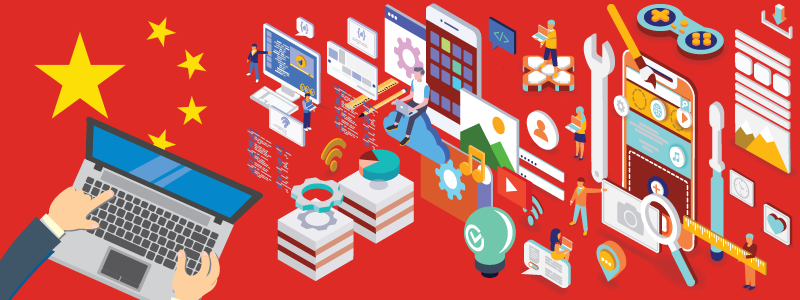Talk of a trade war between the United States and China dominates today’s news cycle. As continued rounds of talks occur (and more are planned), the office of the U.S. Trade Representative (USTR)—the executive branch federal agency that works directly with foreign governments to negotiate trade agreements and to resolve disputes—put tariffs in place for a range of Chinese goods through three rounds of rulemakings. Now, in a fourth round, USTR is proposing to extend its tariffs on Chinese goods further to include information and communications technology (ICT), such as smartphones, laptops, tablets and other mobile wireless devices.
The U.S.-China trade relationship dominates much of today’s political discourse but lost in this is the harm that pending tariffs may have on the app economy, the small business-driven digital economy valued at $1.3 trillion and responsible for 5.7 million American jobs. An additional 25 percent tariff on a range of ICT goods from China would raise the cost of many mobile devices that countless Americans rely upon to access the benefits and tools of the app economy, stifling its growth and, ultimately, innovation.
The current U.S. proposal includes new tariffs on smartphones, laptops, tablets, and other wireless internet devices that represent the access points for millions of Americans to the burgeoning internet of things (IoT) ecosystem. However, these tariffs would be finalized only after USTR concludes its public hearing and takes in public comments on its proposal. This public comment period extends through July 2, 2019. In response, China continues to push back on the United States by lowering tariffs for goods from third-party countries and targeting several large American exports, like soybeans.
Impact on the App Economy
For the United States to remain a leader in the global digital economy, a vibrant and competitive ICT hardware market is critical, and a continued U.S.-China trade war that increases the cost of ICT will negatively impact the app economy. With additional tariffs on ICT products that provide access to apps, like smartphones and tablets, many Americans will not have room in their budget to afford the latest tech they need to participate fully in the digital economy, leading to a decrease in sales and a resulting reduction in the demand for apps developed and sold by thousands of American small business developers.
The App Association is hopeful that the United States and China will reach a deal during further talks on the margins of the upcoming G20 Summit in Japan,or at the very least, that enough progress will occur to delay the implementation of these tariffs. Ultimately, we believe that such an agreement should provide a fair pathway to market access in China. Without a deal in place, however, we face uncertainties about the implementation of new tariffs on ICT goods and their impact. This uncertainty is bad for developers, bad for consumers, and bad for the economy.
What We’re Doing
The App Association has filed a public response to USTR’s request for commentasking for several categories of ICT to be removed from the proposed modified Harmonized Tariff Schedules. This public comment is an important marker for further USTR engagement with the small business innovator community that the App Association represents.
